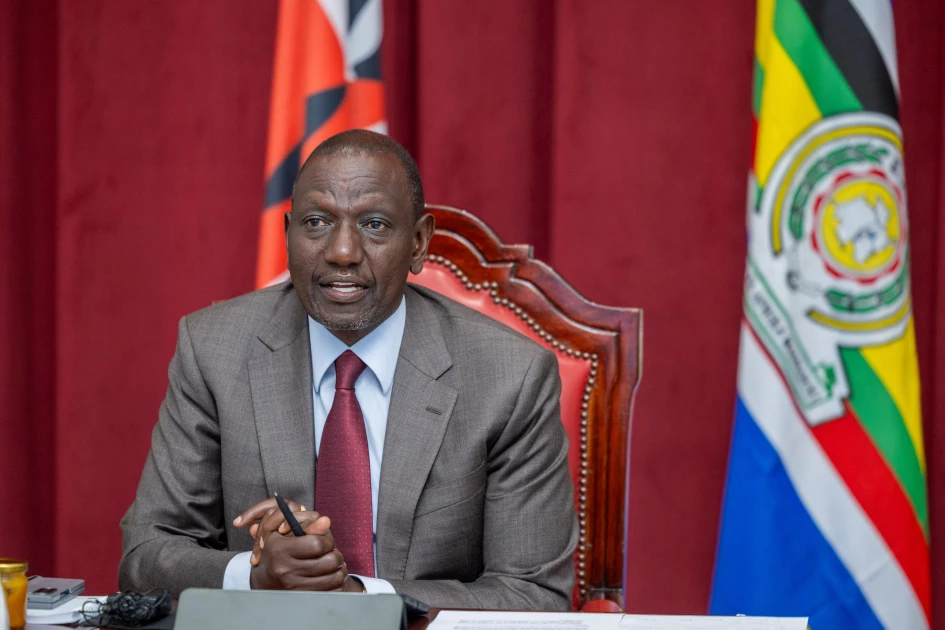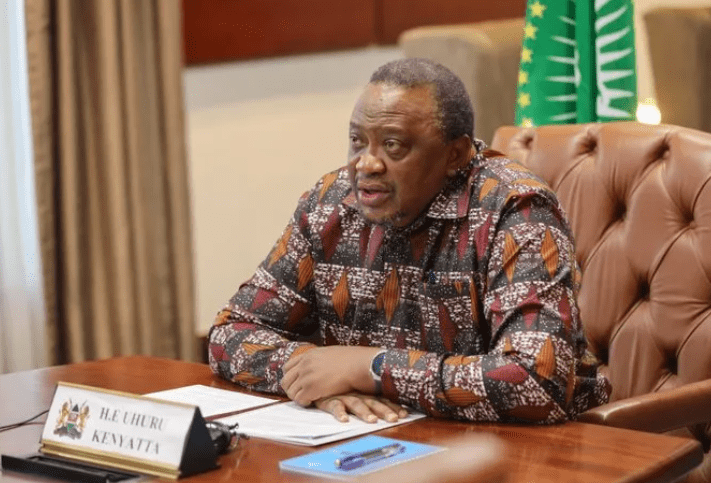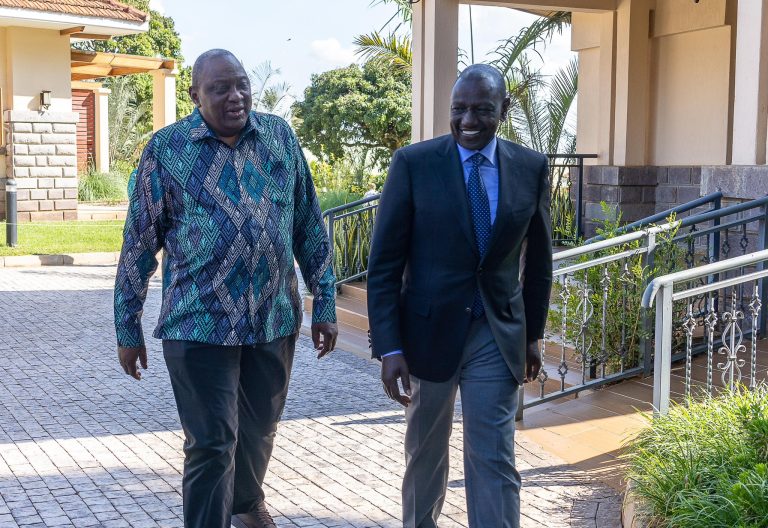ALI M. ZUNGUKA - Africa Climate Summit 2025: What's Next for Africa's Climate Agenda? - The Elephant
Last month, Kenya’s president William Ruto offered to host the second biennial African Climate Summit later this year, should no other African country be willing to take on the task. Ruto made this announcement on Sunday, 16 February 2025, while chairing the Committee of African Heads of State and Government on Climate Change at the African Union (AU) Headquarters in Ethiopia. This meeting took place a day after Kenya’s candidate for the AU Commission Chairperson, Raila Odinga, lost to Djibouti’s Mahamoud Ali Youssouf in an election that went through seven rounds of voting before the winner was determined.
The first Africa Climate Summit (ACS) was announced in March 2023, and within five months, preparations had been completed for Nairobi to host the inaugural summit at the Kenyatta International Convention Centre (KICC).
The main objective of the first summit, co-hosted by the government of Kenya and the African Union Commission, was to deliver innovative green growth and climate finance solutions for Africa and the world. At its closure, the summit had secured commitments and announcements equivalent to US$26 billion from public, private sector, and multilateral development banks, philanthropic foundations, and other partners in the development financing community. In this regard, the first ACS was successful. The summit also concluded with a declaration that it will be taking place biennially, with the next ACS expected to take place in 2025.
However, the summit also received its fair share of criticism. This included the lack of commitments from developed nations, lack of consensus on the climate agenda priorities among African governments on climate action and climate finance, and limited participation from key stakeholders. Over three hundred civil society organisations also felt that despite the initial good intentions for having the summit, the agenda was unduly influenced by non-African parties (mainly Western governments and institutions from the Global North).
Beyond the numbers, the undeniable success of the inaugural ACS was the establishment of a platform where African governments could set the agenda and agree on their regional positions on how to mitigate and adapt to climate change; a platform on which to achieve consensus, develop, and continuously improve “Africa’s climate action plan”; a platform where even those who disagree with the agenda or the outcomes can voice their disproval and get sufficient traction.
Africa’s position on the climate crisis is of great significance because the region is among the worst hit by the effects of climate change. Africa faces a disproportionate burden from climate change while the socioeconomic realities of the communities in the region affect the communities’ ability to adapt to the impacts of climate change. Another important consideration when looking into Africa’s response to climate change is the fact that a lot of the responses to climate change are land-intensive and would require the conversion of land use for millions of hectares of rural lands – lands which rural communities currently rely on for their livelihoods and food security. The ACS is therefore a platform to highlight this and other considerations that are specific to the African continent.
Ruto’s announcement and offer to host the second ACS raises several points for consideration, so I’ll break down the key takeaways – the positives, the negatives, and the more nuanced aspects.
The Kenyan government’s offer to host the second Africa Climate Summit underscores President Ruto’s commitment to climate action, affirming that it remains a priority for his administration – even after the US’s withdrawal from the Paris Agreement. While it seems Ruto may be aiming to maintain good relations with the US, it’s clear that he’s willing to take a stand on this critical issue. Ruto’s approach to climate action has faced criticism for several reasons, most notably for its perceived lack of the meticulous planning required for a country like Kenya, which has less than 10 percent forest cover and where two-thirds of the land is classified as arid or semi-arid. However, the attention and commitment at the presidential level to addressing this urgent crisis should be seen as a positive step. To effectively address the climate crisis, it is crucial for heads of state and governments to first fully understand the magnitude of the challenge and, second, commit to investing in actions that mitigate the problem and help communities adapt to the impacts of climate change. Unlike the US, Kenya is covered when it comes to the first step.
The bad
If no other African country is willing to host the second edition of the ACS, it would suggest that this is more of a Ruto initiative than an AU-driven one. Even worse, other governments may still be unconvinced of the need for – and value of – holding this biennial climate summit. With President Ruto playing a central role in the summit and funding flowing through the AU Commission and Kenya’s Ministry of Environment (which housed the ACS Secretariat), other African governments may have felt sidelined. At least 20 heads of state out of a possible 55 AU member states (less than half) attended the inaugural summit in September 2023.
Additionally, it remains unclear whether other African governments were adequately involved in setting the summit’s agenda. Given the short time frame between the announcement and the summit itself, much of the effort must have been focused on the logistics and planning of the event.
The apparent reluctance of other African governments to host the second ACS may also stem from inadequate follow-up. Ideally, the planning for the first ACS should have included identifying other governments that could champion the cause and take over after the 2023 summit. With sufficient lobbying and bilateral discussions with these potential champions, the announcement that the summit would be taking place every two years could have been accompanied by the selection of the next host country. This would have provided ample time for the next host to build consensus on the agenda, mobilise resources, implement a communication strategy, and address any shortcomings from the first summit. In retrospect, it seems that Ruto’s climate summit was more of a box to be checked than the start of a new movement (as it was presented). If no other country offers to host the second edition and Kenya steps up again, it could cement the summit as “Ruto’s climate summit”, ultimately undermining the opportunity to make it a key event on the AU’s, and in African governments’ calendars.
The not-so-bad
The announcement that Kenya would host the first Africa Climate Summit came in March 2023, and just five months later, in September, Kenya successfully delivered an impressive summit. The summit gained the traction expected of a regional climate meeting and showed all the signs of a strong start. As is typical at regional and global gatherings, deal-making took place. Climate sector stakeholders, including governments and institutions, were given a platform to voice their priorities and concerns. What shortcomings the summit may have had in terms of content, it made up for in stature. Building on the Kenyan government’s experience, another country could step forward to host the second ACS and still deliver a remarkable summit in the next six months, reestablishing a platform for the continent to define its priorities and agenda in addressing the climate crisis.
Ethiopia has proposed hosting the second Africa Climate Summit at the African Union during the AU Summit in September 2025. This is a positive development, with Ethiopia benefiting from the AU Headquarters in Addis Ababa as an ideal venue for such an event. Ethiopia’s State Minister of Foreign Affairs, Ambassador Mesganu Arga, presented the country’s bid to host the ACS during his address to the Committee of African Heads of State and Government on Climate Change (CAHOSCC). Ambassador Mesganu also acknowledged that the first ACS was a pivotal moment in strengthening Africa’s role on the global stage, demonstrating the continent’s collective commitment to urgently addressing climate change and its impacts.
In his address, the state minister highlighted the importance of the ACS as a vital platform for advancing Africa’s climate negotiations, providing countries with the opportunity to formulate and implement the necessary measures to safeguard the continent and ensure a sustainable future for future generations. Recognizing the ACS as essential to advancing the continent’s climate agenda is a key point that must be clearly communicated to all African governments, especially given that only one summit has been held so far.
So, what’s next for the Africa Climate Summit and the continent’s climate agenda?
First, it would be ideal if another country from a different region of the continent – whether north, west, or south – hosted the second edition of the summit. A Francophone nation hosting the summit would offer an even greater opportunity to unite the continent and set a precedent that could serve as a criterion for selecting future host countries (alternating between Anglophone and Francophone AU member states). French-speaking Africa comprises 26 AU member states, and the unity and cohesion of the Francophone bloc are consistently evident at both regional and global meetings. Some pundits speculate that this unity is part of the reason why Kenya’s Raila Odinga lost the AUC chairperson elections to Djibouti’s Mahamoud Ali Youssouf who is fluent in both English and French. Any opportunity to strengthen ties between Francophone and Anglophone AU member states should be seized, enabling the continent to fully leverage its advantage as the region with the most votes in global discussions.
Second, the US’s second withdrawal from the Paris Agreement in Trump’s second term can already inform part of the agenda for the second ACS. African governments and the AU can use this second summit to call out the American president’s imprudence in his decision to embrace fossil fuels and ditch clean energy policies. As the saying goes, when America sneezes, the world catches a cold. Perhaps it’s time for Africa to call out America for its reckless transmission of communicable diseases. Of course, with the closure of USAID in January 2025 this may be a far-fetched ambition, but a man can only dream.
Finally, the second ACS comes at a pivotal moment. In November 2025, the Climate Convention will host its 30th Conference of the Parties (COP) in Brazil – where the major COPs (the three Rio conventions) began. It is crucial for the African continent to be well prepared to make a powerful statement and assert its position after three decades of climate negotiations. Considering how land use changes to address environmental crises will impact Africa’s rural communities – and the need for investment in responsible land governance and holistic environmental governance – would be an excellent starting point. The ACS offers an ideal platform for African governments to develop such positions, aligning and strengthening the continent’s stance in preparation for COP30.











